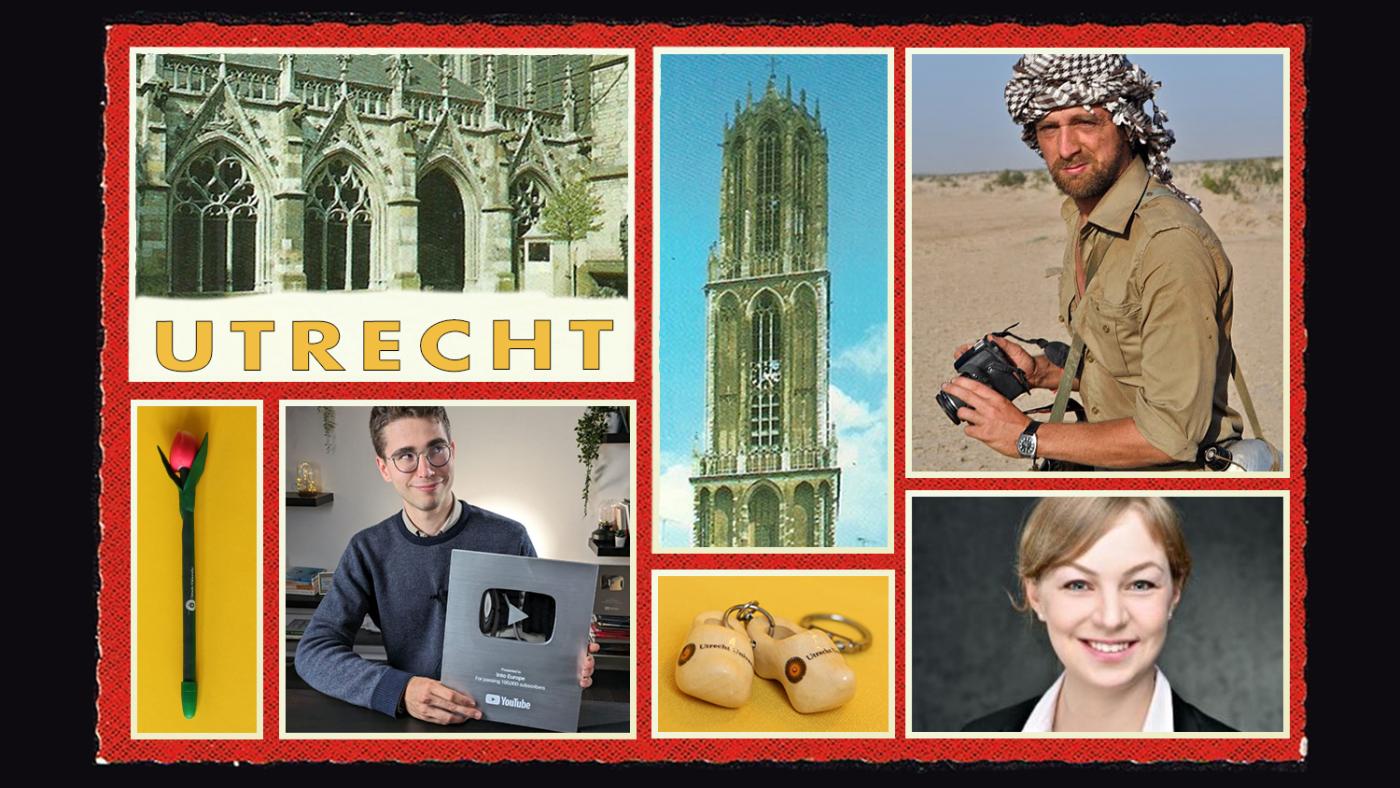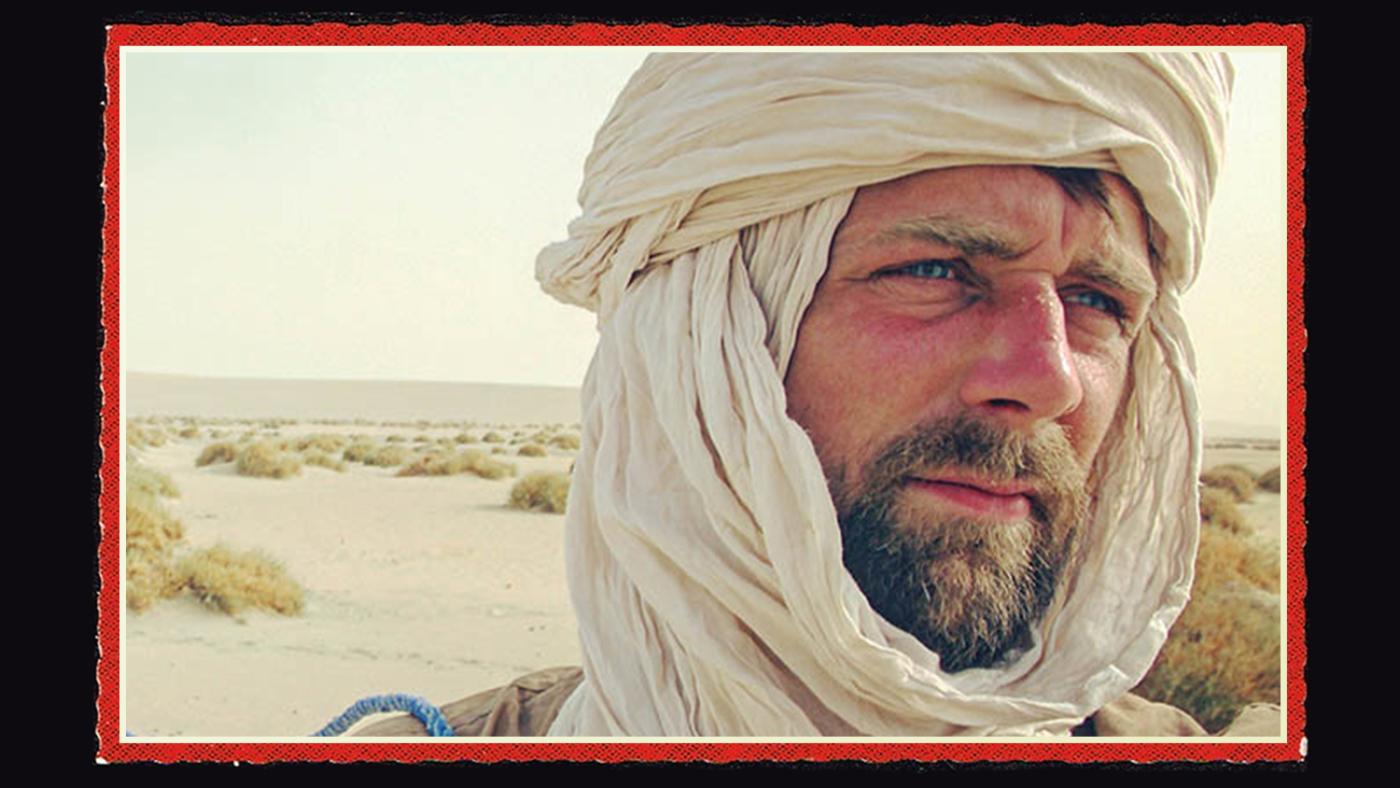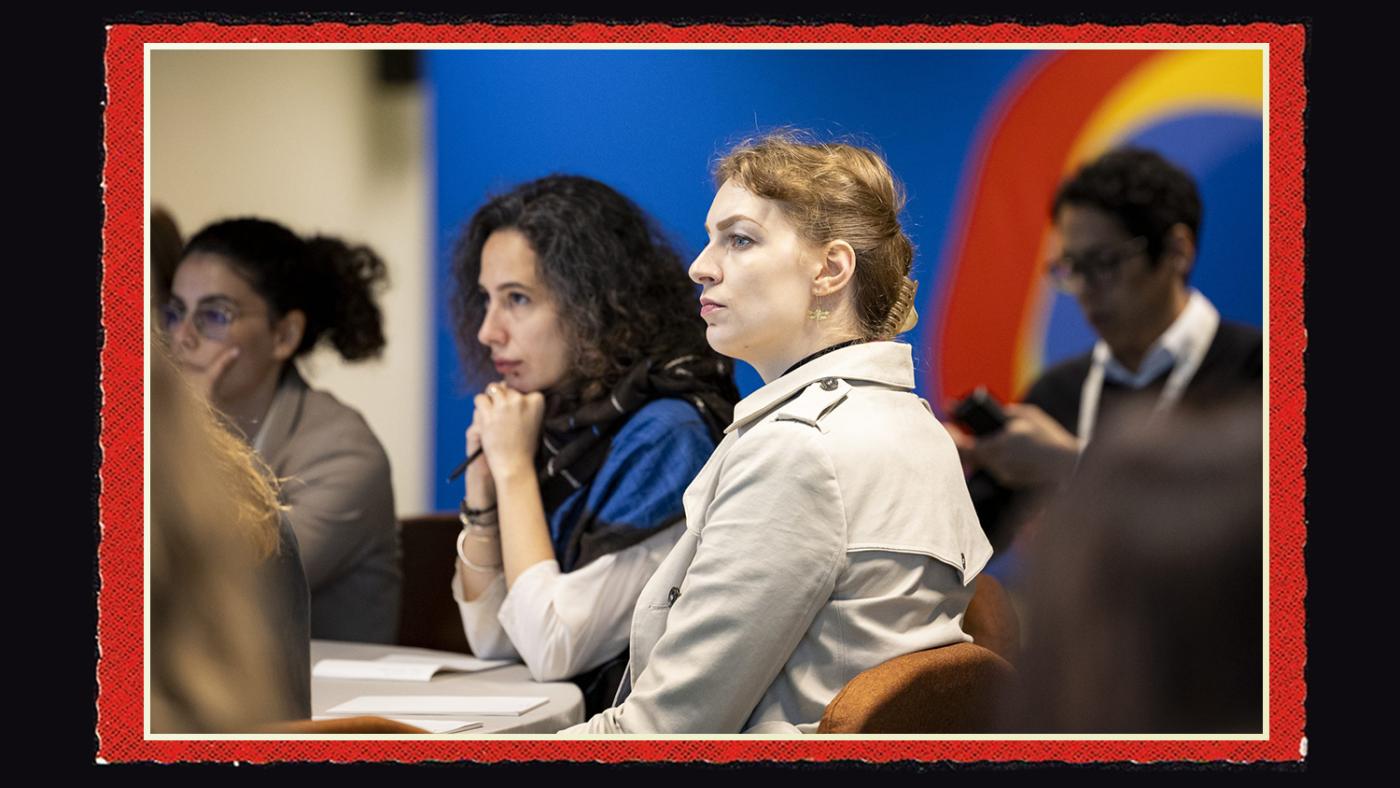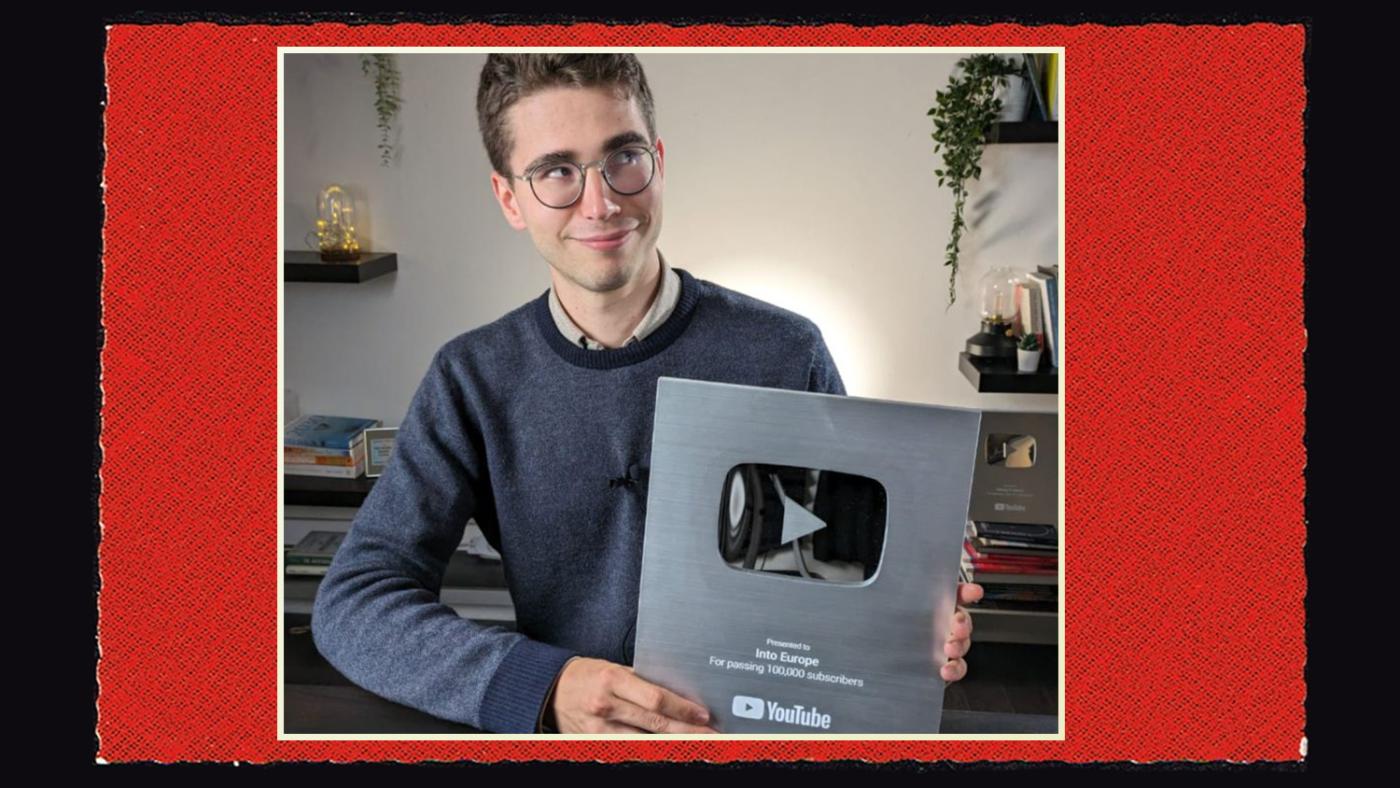International graduates give tips to freshers arriving from abroad
‘As a student, you should try everything at least once’

There is no safe space at a university. You should be challenged
Jeremy Curl, filmmaker, photographer and explorer

If there’s one thing that cannot be said about History graduate Jeremy Curl (42) is that he is risk-averse. In 2008, this Irishman crossed the Sahara desert with the Touareg tribes that live there, covering 2,000 kilometres on foot and by camel. He's also interviewed the Castro family in Cuba and lived in the breakaway republic of Transnistria, a frozen conflict zone between Moldova and Ukraine. In his travels, he’s been kidnapped, arrested, stabbed, shot at and almost died of thirst. But the efforts have paid off: he’s been nominated for a Rolex Award, several international magazines have published his photographs, and he was even featured in an exhibition alongside Nelson Mandela in 2010. Last year, he released his first feature film.
The decision to study at UU can be interpreted as one of the first instances in which his explorer side came to the surface. “It’s very foreign for people in the UK or Ireland to study abroad. Most people around me didn’t even know they could study in the Netherlands. I thought it was quite exciting to go to the continent.”
It doesn’t come as a surprise that, as a UU student, Curl made a point to try everything and talk to everyone. “That’s part of the reason for being at a university, right?” He appreciated the opportunity to meet people from different parts of the world. “The university is the first time you get in touch with people with different points of view. I remember there was a charity football match once, and people from Iran and Israel were playing on the same team. I remember thinking: ‘Where else are you going to see that?’”
“There is no safe space at a university. You should be challenged”, he continues, saying that freshers should get out of their comfort zones as much as possible. As a student, Curl enjoyed walking into random bars just to chat with other customers. His curiosity also led him to learn the Dutch language. He even obtained a proficiency diploma. “But I’m a bit rusty now,” he says.
He admits he wasn’t the best student. “I paid very little attention to academics, all I wanted to do was make films.” One of them, was even screened in cinemas in Utrecht. Writing papers bored him, so he tried to find alternatives: “I asked if I could submit my essays in film form, but they said no.” Curl smiles as he recollects a little act of rebellion. “I was particularly angry with an Art History lecturer who asked us to write an essay about sculpture. I cut my essay into strips, one for each line, and taped the strips around a mannequin leg. That way, he would have to twist the leg while reading it. He asked if I could submit a digital copy, but I said I had deleted it. The teacher wasn’t amused.”
Hence this advice for international first-year students: “Don’t take no for an answer. If someone says you can’t do something, just try harder. If you want it enough, you can do it. You’ll hear no a billion times in your life – and if you’re the kind that goes and does it anyway, you’ll hear no a lot more.”
However, the fact that he didn’t like writing essays doesn’t mean he is not interested in the written word. On the contrary: his next piece of advice is “Read, read, read! Read as much as you can, not just what you’re told to read. Not just from a career or job point of view, but also for forming your opinions and understanding the world around you.”
Just try to get the most out of group work for yourself
Katharina Dreismann, Corporate Social Responsibility Specialist at Lidl International

Doing a Master’s in Sustainable Business & Innovation in Utrecht was a no-brainer for Katharina Dreismann, (31), from Germany, who has always been interested in sustainability. “UU offers a very international and innovative environment, two key factors for sustainability to evolve,” she says. The fact that Utrecht is a “cutesy, buzzing, lively little city” helped as well. Today, she works at Lidl’s international headquarters back in Germany, ensuring Corporate Social Responsibility compliance in the supply chain of 28 countries.
She lived in Utrecht from 2017 to 2020. Like many students, she had to settle for a room outside the city, in Zeist. “It was horrible. The place had mice, broken windows and the bathroom wasn’t proper.” Hence her first advice to current first-year students from abroad: “Be prepared and don’t be naïve in terms of housing. It is really hard for international students to find rooms. So many students end up in tents or bad accommodations. In general, Dutch students don’t want international roommates, so their Facebook ads say ‘no internationals’ up front.”
She also warns that, for many international students, living in Utrecht is not easy financially. “When looking for housing, you’ll be competing with people with a higher budget. Dutch students get free public transport, internationals don’t. If you live far away and pay the full fare to get to Utrecht in the rush hour by train, that gets very expensive. So, bear all those costs in mind.”
According to her, another thing to take into consideration is whether your programme has a mandatory internship period. “Internships are either unpaid or paid very little in the Netherlands, so you need to be able to afford that time as well.”
When it comes to studying, Dreismann was surprised by the amount of group work. “Almost every grade was based on group work, which can be a plus or a minus depending on the group you end up in. However, don’t focus too much on the grades. Just try to get the most out of it for yourself. I don’t think employers look at your grades anymore, as long as you have a decent degree.”
Dreismann also advises finding a thesis supervisor as early as possible. “There is a shortage. I had to prolong my studies for a whole year because my supervisor left for another job and they didn’t have any more staff available. My now fiancé, who is Dutch and I met in Utrecht, had the same issue.”
Since Dreismann’s first language is German, learning Dutch was not that difficult for her, but she did have to push herself to socialise in that language. For example, she joined Crea’s Musical Theatre course in Amsterdam, which was ministered in Dutch. “I was forced to communicate in my very broken Dutch. It was embarrassing, but I’d recommend it. Since most Dutch people switch to English when they notice you’re a foreigner, those courses are a great way to engage in conversations.”
She looks back at her time at UU fondly. “Studying in Utrecht was one of the best years of my life. It was a rare chance to meet so many people from different cultures. That’s something you will not encounter later on, unless you stay in the Netherlands, of course.”
Finish your deadlines as early as possible
Hugo Bezombes, video journalist, founder of the YouTube Channel Into Europe

Bezombes (26) is French and did a Master’s in New Media & Digital Culture at UU in 2020 after a Bachelor’s in Sustainable Innovation in Eindhoven. As a UU student, he used to contribute to DUB as a blogger. In 2020, during lockdown and in between his Bachelor’s and Master’s, he started the YouTube channel Into Europe, initially to talk about sustainability in the continent. He was inspired by Vox’s Explained series. Today, his channel has almost 150,000 subscribers and discusses Europe’s biggest economic and policy challenges, from immigration to the dependence on Russian gas. “It’s a Covid hobby that got out of hand,” he says with a smile.
He got about 1,000 subscribers in the first year, but things took off in 2021 thanks to two videos: one about the “blue banana”, the region that was Europe’s first economic corridor; and another one about Ukraine, which was already flaring up at the time. “They were already deploying troops to the border. Apparently, I just timed it perfectly, entirely by accident.” His channel went up to 30,000 subscribers overnight.
Bezombes’ first advice to freshers is to try to figure out as early as possible what they want to do for a living as “this will influence your thesis topic and your internship”. If you are not yet sure what your calling is, he says you can try “low-threshold things”. For example, as a student interested in journalism, he joined the magazine of his study association in Eindhoven and volunteered to write blogs for DUB. “If you don’t like being a blogger, you can stop writing after a few posts.”
If you’re entrepreneurial like him, Bezombes advises you to experiment and bear in mind that the path is not going to be a straight line. “When I got started, I was very much focused on sustainability and my videos were heavily animation-focused. I was trying to emulate the Vox style. Over time, I’ve realised that I prefer doing deep analytical dives into broader topics. Even the name of the channel has changed. There have been two or three redirections, which is part of the process.”
When it comes to studying, Bezombes was organised. “Finish your deadlines as early as possible. Some people wait until the last moment to write an essay and then they get really stressed out. I prefer to finish, like, three weeks ahead and then feel as though I have three weeks of holidays.”
Last but not least, he would highly recommend learning Dutch, especially for those who intend to live here long term like he did. Bezombes lived in the Netherlands for seven years. “Don’t be under the illusion that Dutch is not important. Sure, there are big companies that only hire English-speaking people, but that is a small fraction of the opportunities that are out there. You’re really restricting yourself if you don’t learn the language.”